Edifier MP230 review: a funky Bluetooth speaker with retro stylings
The Edifier MP230 is a decent portable Bluetooth speaker but it does have its faults
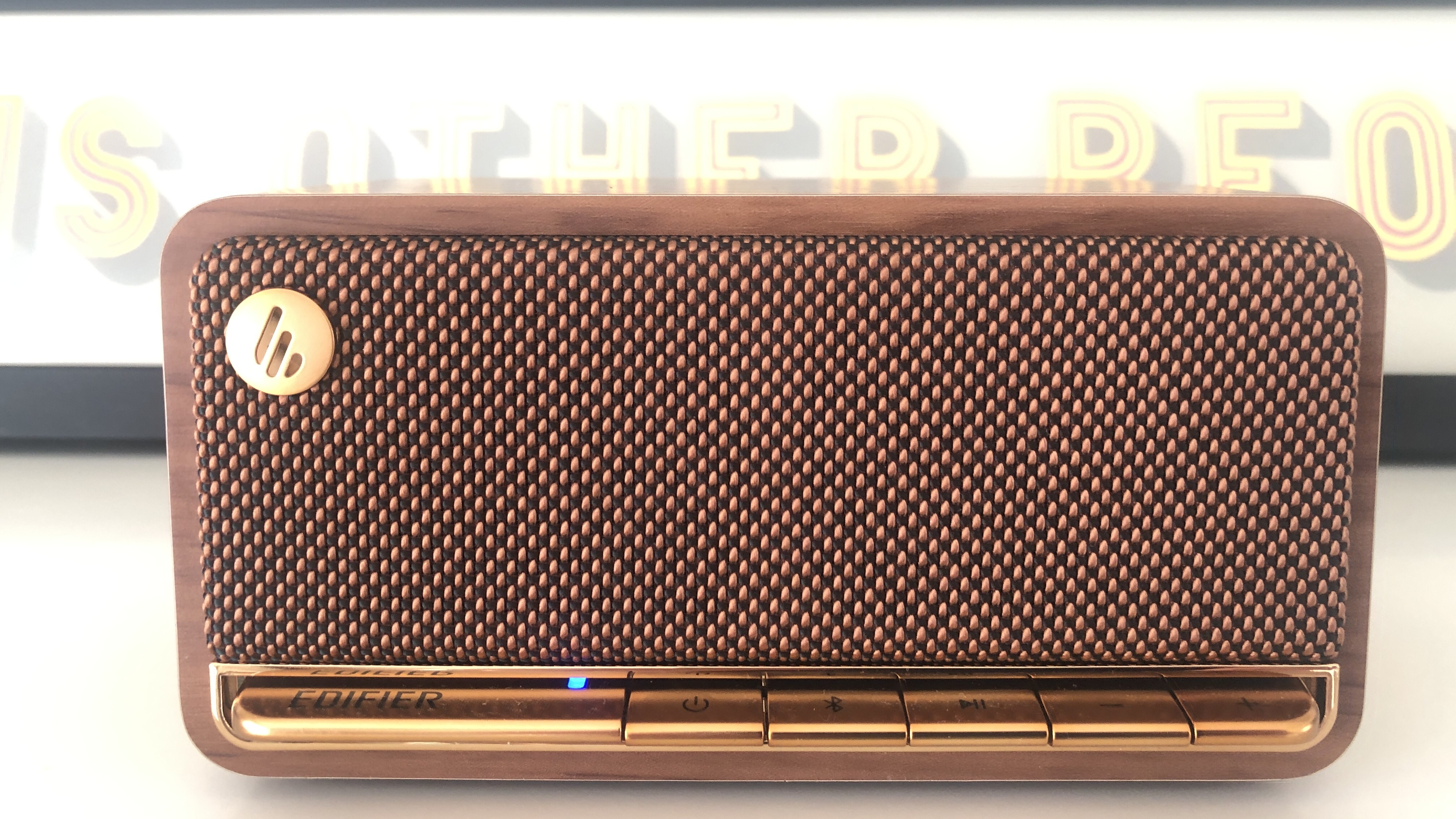
If you like the looks, you’ll get beyond the fact the MP230 is way less portable (on a practical level) than the other portable speakers this sort of money will buy. What’s harder to get beyond is the way its performance suffers at louder volumes.
-
+
Unique looks
-
+
Plenty of battery power
-
+
Pleasant sound at lower volumes
-
-
Suffers (in audio terms) at bigger volumes
-
-
Not built to withstand much wear and tear
-
-
No app or EQ adjustment
Why you can trust T3

Any Edifier MP230 review has to start by commenting on its looks - it seems like someone’s idea of what a speaker in 1950 might have looked like if wireless technology had existed back then.
The market for affordable portable battery-powered wireless Bluetooth speakers is big, and getting bigger all the time - but Chinese brand Edifier thinks it knows how to stand out from the crowd.
Its individuality will carry the MP230 a distance, I don’t doubt. But it’s going to need more than a ‘mid-century modern’ aesthetic if it’s going to make its mark against some of the best Bluetooth speakers about town…
Edifier MP230: price and availability
The Edifier MP230 portable Bluetooth speaker is on sale now, and in the UK it’ll set you back £99 and some change. In America, it’s priced at $149. It’ll cost Australian customers AU$179 or thereabouts.
Your choice of £100-ish Bluetooth and/or smart speakers isn’t exactly restricted - just off the top of my head, I could point you to the Audio Pro P5, the Bose SoundLink Flex, the Huawei Sound Joy, the JBL Flip 6… all there or thereabouts when it comes to price, and all are acknowledged by T3.com as being among the best pound-for-pound options around. So while the Edifier MP230 has a distinctive aesthetic when compared to most of its competition, it’s going to take a bit more than that to make it a success.
Edifier MP230 review: performance and features
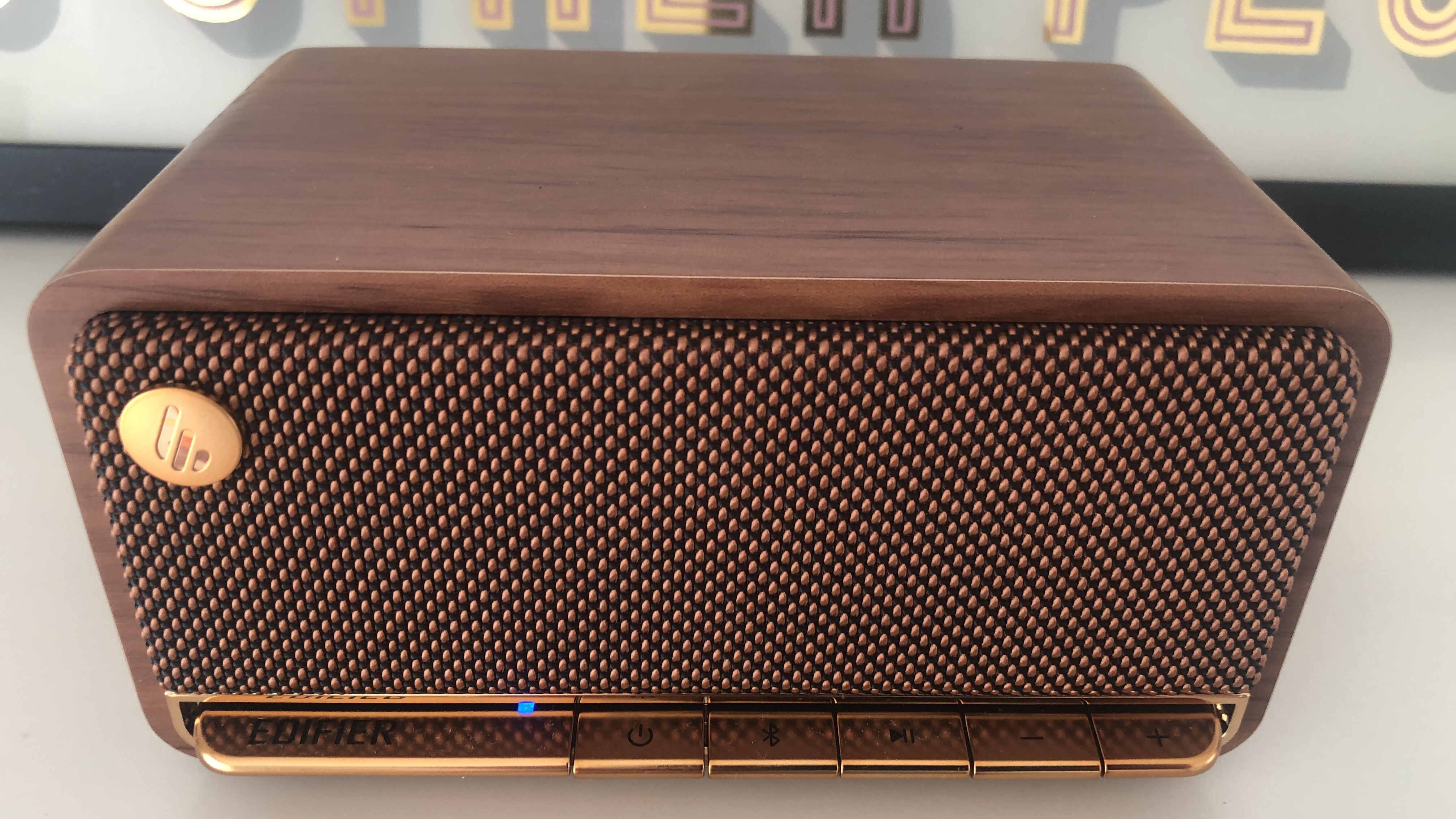
‘Up to a point’ is a phrase that will be revisited during the course of this review. Because there are quite a few things the MP230 is quite good at - up to a point.
Take low-frequency reproduction, for example. No one’s expecting seismic bass from a little speaker like this, but the Edifier does pretty well with bass presence - up to a point. At modest volumes, the bottom-end is quite nicely shaped, well controlled and actually quite sprightly. But increase the volume a little, or put on some music with a very pronounced bass emphasis, and the MP230 can lose authority over its own low-frequency reproduction. Bass can smear, and a fast-moving bassline can become one unbroken hum.
Get all the latest news, reviews, deals and buying guides on gorgeous tech, home and active products from the T3 experts
It’s quite pleasantly detailed and informative through the midrange, too - up to a point. The character and attitude of a singer is handed over more or less intact, but the Edifier isn’t particularly adept at picking up on the dynamic variations or changes of emphasis that can occur during the course of a recording. Everything that occurs in the midrange occurs at one consistent level of intensity - which can turn the ‘light and shade’ of most recordings into a monotone.
As far as the top of the frequency range is concerned, the news is generally pretty good as long as you’re circumspect with the volume control. If you’re tempted to listen at more significant volumes, what was quite pleasant, detailed, and well-organised treble becomes thin and insubstantial - which, as we all know, is the opposite of ‘pleasant’ to listen to.
Considering just how close together the drivers are inside the little cabinet, the discernible stereo separation is to be applauded. But again, this is only up to a point - volume, as usual, is the enemy of the MP230. Too much of it can turn the speaker from an admittedly narrow-sounding stereo device into an ill-disciplined mono speaker.
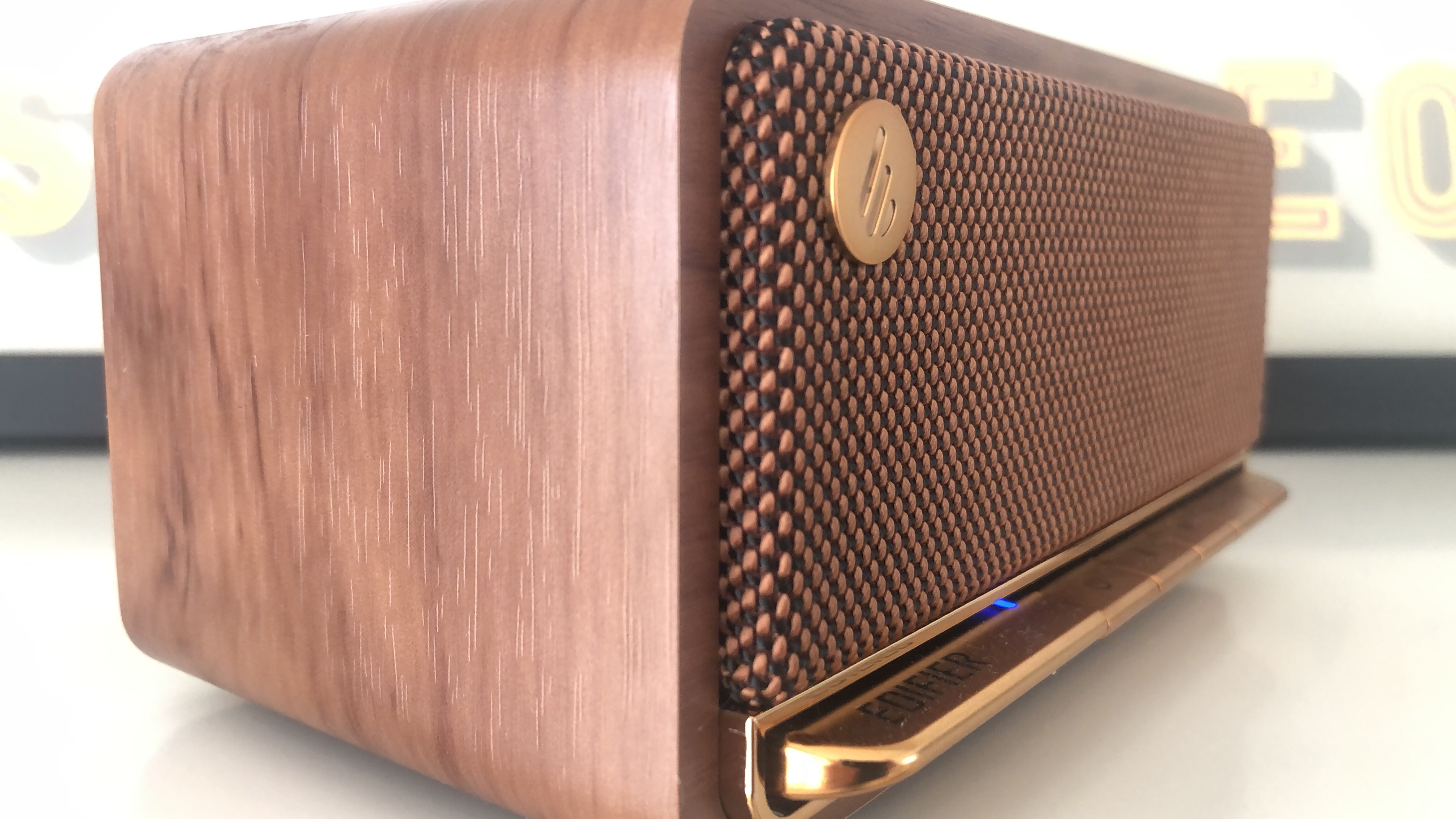
The lack of EQ adjustment means there’s no possibility of the end user intervening here, either. The sound you’re given is the sound you get.
The MP230 uses Bluetooth 5.0 for wireless connectivity. Edifier isn’t all that forthcoming about codec compatibility, but it’s definitely good for SBC and AAC - and there’s no problem getting an MQA-powered TIDAL Masters file on board either.
On the inside, the MP230 is fitted with a pair of 48mm full-range drivers (facing forwards) and a passive radiator (facing backward) offering some low-frequency reinforcement. Each of the drivers is powered by 10 watts of Class D amplification.
On the rear of the cabinet, there’s a USB-C - it’s for both power and data transfer, so can be used to charge the battery or facilitate playback. There’s also a 3.5mm analog input and a slot for a microSD and/or TF card - which is almost as much of a throwback as the speaker’s appearance.
What there isn’t, though, is any IP rating - which does rather put a crimp in the MP230’s claims to be a portable speaker. Unless, of course, ‘portable’ in this instance simply means ‘easily moved from one room of your home to another'.
Edifier MP230 review: design and set up
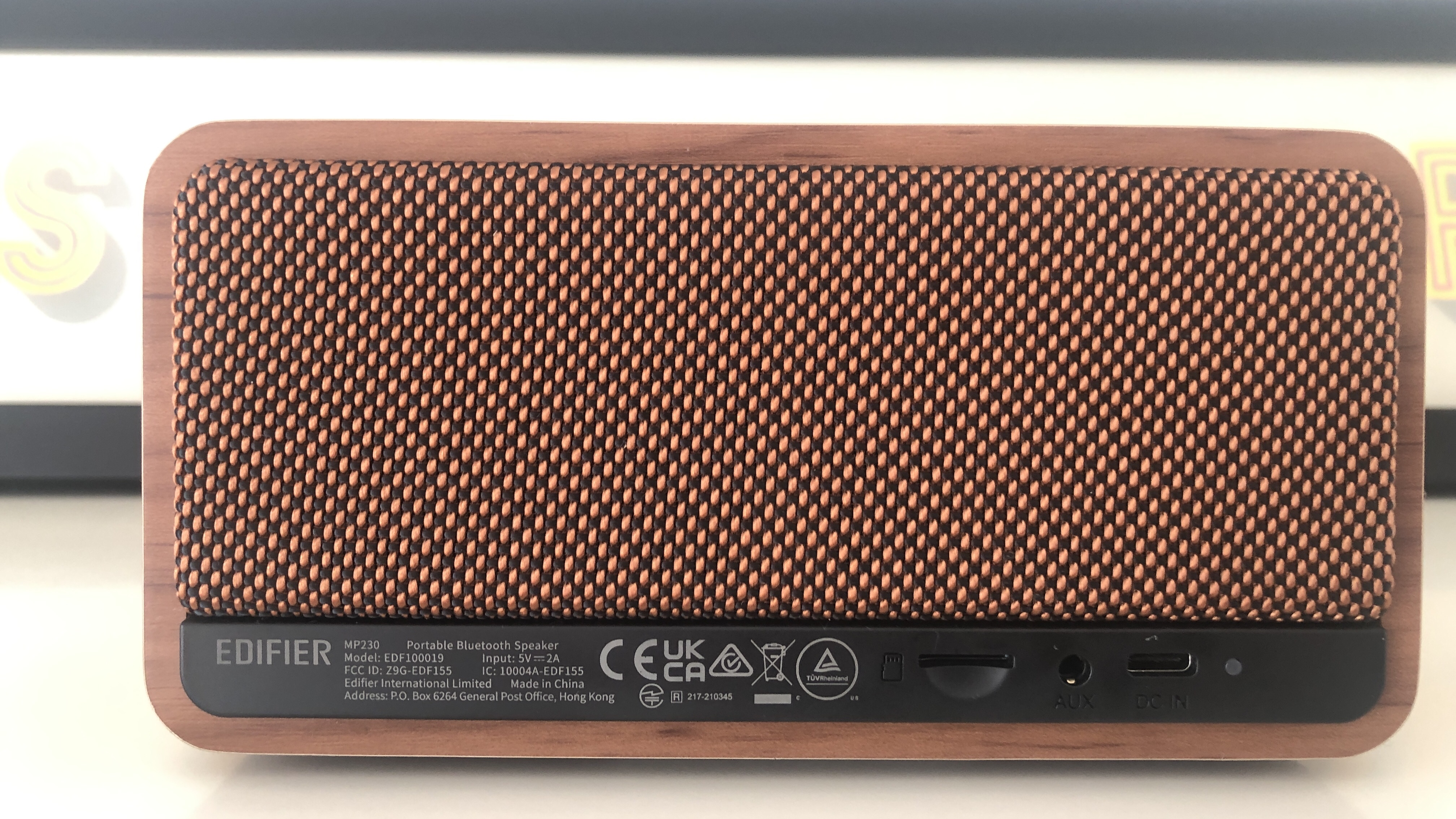
None of your rugged, durable plastic and rubber for the Edifier MP230, thanks very much - instead, it’s built from MDF covered with a wood-effect vinyl wrap. In conjunction with its fabric grille and five copper-coloured piano-style control buttons, it looks more like a miniaturised radiogram from the 50s than something as 21st century as a battery-powered wireless speaker. The controls cover ‘Bluetooth pairing’, ‘power on/off’, ‘play/pause’ and ‘volume up/down’ - these last two can be ‘skip forwards/backwards’ as well if you press and hold.
Edifier is claiming a life from the MP230’s 2500mAh Lithium-ion battery of ten hours here - which, it turns out, is easily achievable. Whether or not you’ll want to exploit this stamina by slinging the MP230 into a bag and taking it out and about is debatable.
At 85 x 97 x 162mm (HxWxD) and 850g the Edifier is most certainly portable, but while the cabinet looks good in a retro kind of way it also looks like it could mark or scratch quite easily too. There’s a reason the majority of battery-powered Bluetooth speakers are bouncily rubberised, after all…
Edifier MP230 review: verdict
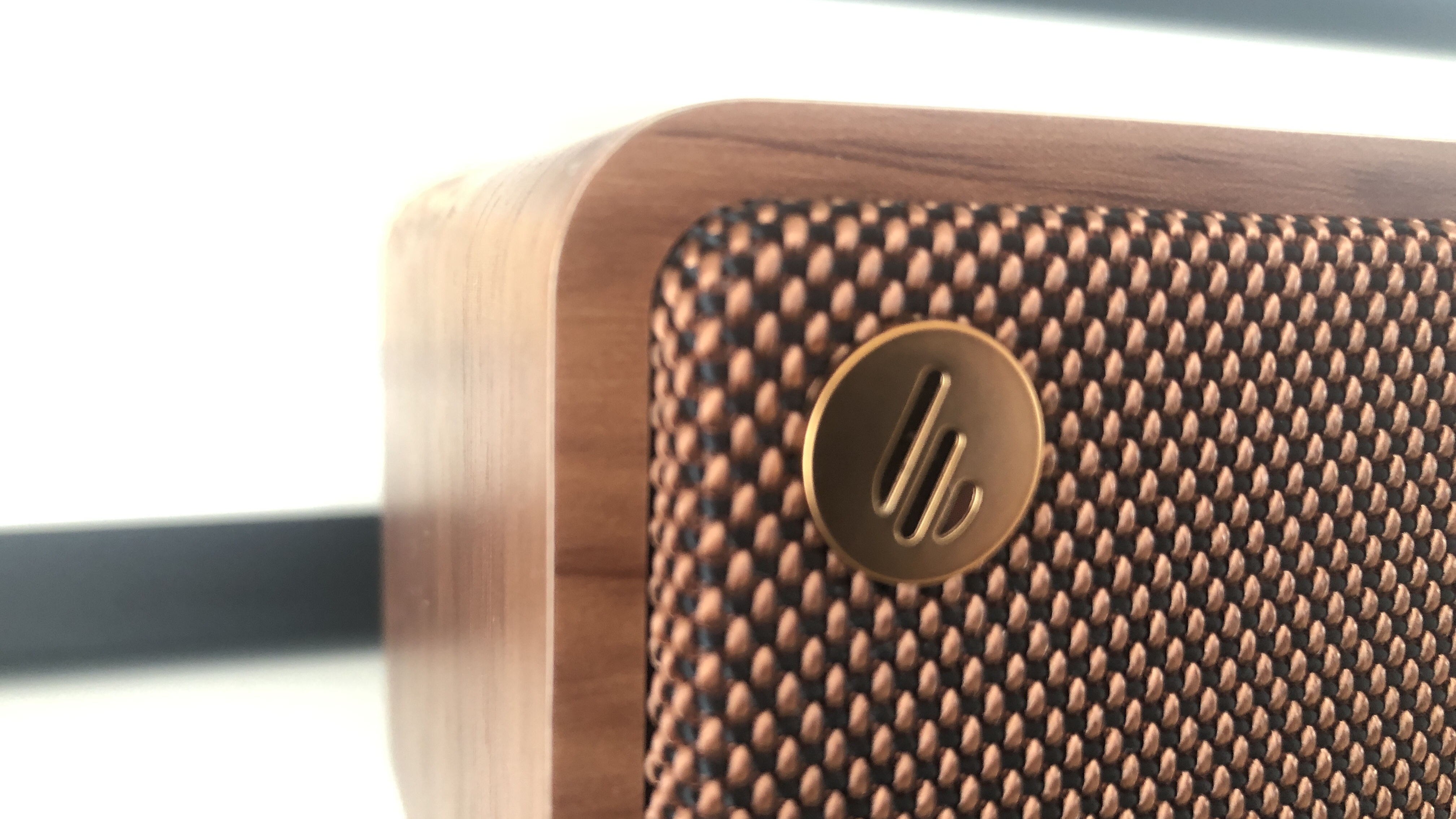
A USP is all well and good - and in all honesty, I quite like the Edifier MP230’s USP. It makes the speaker a lot less practical than its obvious rivals, of course, but an individual aesthetic is quite often a good idea. But a USP that consists of “sonic crisis at the first suggestion of volume” is quite a lot harder to get behind.
Also consider
In some ways, the Audio Pro P5 is similar to the Edifier MP230. They’re both short of features, and they’re both the opposite of ‘smart’ speakers. The P5 doesn’t have battery life to match that of the MP230, either. But what it does have is enjoyable, engaging and quite convincing sound quality - and that holds true no matter the volume level at which you decide to listen.
Simon Lucas is a freelance technology journalist and consultant, with particular emphasis on the audio/video aspects of home entertainment. Before embracing the carefree life of the freelancer, he was editor of What Hi-Fi? magazine and website – since then, he's written for titles such as Wired, Metro, the Guardian and Stuff, among many others. Should he find himself with a spare moment, Simon likes nothing more than publishing and then quickly deleting tweets about the state of the nation (in general), the state of Aston Villa (in particular) and the state of his partner's cat.
